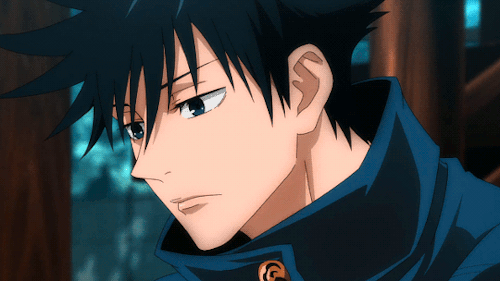mideum. an archive for my meta posts and critiques. formerly/notoriously known as alphaunni lmao
237 posts
Latest Posts by bpdnanaseharuka - Page 2

I just wanted to draw the girls from ikuhara anime

Here's all the Ikuni series characters (and the man himself) sorted by their astrological sign in case you were curious.
every piece of ""autistic representation"" in hollywood sucks not just because of the infantalization and inspiration porn but because movie executives always fail to realize the real universal autistic experience: spending your childhood slowly and unfalteringly realizing all of your friends not so secretly hated and/or merely tolerated you at best and you've missed every social signal about it ever

That's what always happens in capitalist societies. They say that if you don't want to be poor, there's a certain thing you have to do. But then everyone does it, so it's no longer effective. The system depends on making sure that there's always a supply of poor people to exploit.
Many transformative works fandoms start with the assumption that they are part of an aggrieved minority that's the target of unjust persecution, given:
- homophobia at large in the wider world (many polls indicate that fandom has a larger-than-average percentage of queer people);
- misogyny at large in the wider world (most polls over the years indicate that fandom is majority female);
- regressive conservatism across the board regarding (but not limited to) media content.
And in the wider world: yes, transformative works fans are a minority, and often each individual has trauma, baggage, &/or a history of being marginalized and oppressed, if not outright harmed, in "real world" spaces.
However, within the communities of fanspace, I have rarely seen any subsect of fandom acknowledge that it is the dominant force within that fanspace in a responsible way beyond the occasional fundraiser (that benefits third party charities and not marginalized individuals within the fandom) or campaigns to get continuations of their preferred media or for their ships to get canonized (which is, ultimately, self-serving).
Instead, we get:
- defensive posturing every time even the mildest thoughtful critique of their favorite ships/characters/fandoms enters their awareness;
- widespread harassment campaigns framed as "victims" just "fighting back" against "oppression" (when the "oppressors" have fewer numbers, smaller reach/social capital/etc within that space);
- a very Americanized blend of "staunch individualism" (where one's own actions should be judged on their own and not as part of a wider pattern across fandom(s)) and "White Girlboss Choice Feminism" (where "if a (white) woman chooses to do something, it is inherently progressive for her to do it, without regard for her positionally or impact within an intersectional framework").
And so on.
What would "responsible ways" of acknowledging one's power within fanspace look like, you may ask?
- donating directly to and signal boosting mutual aid links, especially for fans of marginalized identities;
- taking hard public stances against bigotry of ALL kinds within the ranks of your fellow fans, by sharing information about bad actors, deplatforming and disengaging with bad actors even if they make fanwork you enjoy, and protecting/standing up for targets of harassment outside your fandom coterie(s);
- openness to thoughtful critique of your circle within fanspace (rather than being defensive and assuming victimhood by default) and sharing same, encouraging both yourself and others to learn and improve;
- actively taking steps to read/share/create fanwork (which includes meta, media analysis, etc) that embraces/uplifts a diversity of perspectives beyond your own.
If we can't be responsible with our social power *within the spaces where we do hold that power,* we're no better than those regressive white nerdbros complaining about "woke invasions" of "our spaces" - when the reality is, nerds won the culture war and have way more social capital than some John Hughes-style archetypes of the Bullied Nerd.
We can be better than them. Our fanspaces can be better than that. Let's work together to make that happen.
“With fandom the kind of racism that you most commonly see isn’t things like racial slurs and hate speech and white hoods. What you really see is a constant communal prioritization of white people and white characters, even when there are non-white characters in major roles. This is a trend across almost all fandoms.”
— Holly Quinn in Episode 22A of Fansplaining
sometimes you can tell when somebody who likes a ship just likes one of the characters and is simply using the other half as a vaguely ooc vehicle to make content for their fave which is whatever. not against the law. until the other half theyre using as a vehicle is YOUR fave. and then you want to explode them with your mind

so I saw this trend like 84 yrs ago (yes I’m that late)
Top Fave Books from Black authors and/or Black MCs (2025)

Happy Black History Month from WWC!
In honor of BHM, we've compiled a list of some of our top favorite reads (thus far) that are either by Black diaspora authors and/or the main character is Black. Feel free to add your own to this list!
---
Colette’s picks
For my recommendations, I've focused on escapism and/or black woman romances only, because we all can use a bit of joy. These are adult reads by Black authors.
The King’s Seer (series) by L.S. Bethel | Genre: Feudal, Fantasy, Romance, Alt World, BWAM (Hero is Korean-Coded) | Link (My new favorite series)
Voices and Visions by Lashell Collins (Touched Series) | Genre: Mystery, Psychic Detective, Romance, BWWM | TW: Escape from off-screen domestic violence, murder | Link (Love this series so far!)
Taken to Voraxia (Xiveri Mates Series) by Elizabeth Stephens | Genre: Sci-Fi Romance, Fantasy (BWAlien &Alien) Coded race | TW: Kidnapped bride | Link
Taken to Nobu (Xiveri Mates Series) by Elizabeth Stephens | Genre: Sci-Fi Romance, Fantasy (BW&Alien) | TW: Kidnapped bride | Link
Unfrozen by Regine Abel | Genre: Paranormal Romance, Sci-Fi BW&Alien/Monster | TW: Torture, experiments (briefly at beginning) Link
I Married a Naga (Prime Mating Agency, #2) by Regine Abel | Genre: Sci-Fi Romance, Marriage of Convenience BW&Alien/Monster | Link
Rescued by Her Relic by Paulina Woods | Genre: Sci-Fi Romance, BW&Alien/Cyborg, Apocalypse | Link
The Alpha Promise by Hayat Ali | Genre: Paranormal Romance, Vampires, BWAM | Link
Deena's Deception by G.S. Carr | Genre: Western, Historical Romance, Mail-order Bride, BWWM | Link
Chosen by Tiffany Patterson | Genre: Paranormal Romance, Shapeshifters, BWIM (Indigenous hero) | Link
Honorable mentions at the top of my to-read list
Death at a Seance by Carolyn Marie Wilkins | Link
Conjure Women by Afia Atakora | Link
The Gatekeeper by K. Alex Walker | Link
Melanie’s picks
A mix of fictional narratives, memoir, and politics/culture. All adult reads.
The Splinter in the Sky by Kemi Ashing-Giwa | Genre: Sci-Fi, Romance | Link
*Kindred by Octavia Butler | Genre: Sci Fi | Link (*Triple recommended by multiple mods!)
Razorblade Tears by S.A. Cosby | Genre: Mystery, Thriller, Suspense | Link
Devil in a Blue Dress by Walter Mosely | Genre: Mystery | Link
Death of the Author by Nnedi Okorafor | Genre: Mixed/Meta | Link
Between the World and Me by Ta-Nehisi Coates | Genre: Bio & Memoir | Link
Heavy: An American Memoir by Kiese Laymon | Genre: Memoir | Link
Hood Feminism: Notes from the Women that a Movement Forgot by Mikki Kendall | Genre: Politics, Society & Current Affairs | Link
The New Jim Crow: Mass Incarceration in the Age of Colorblindness by Michelle Alexander | Genre: Politics, Society & Current Affairs | Link
SK’s picks
If Beale Street Could Talk by James Baldwin | Genre: Fantasy, Romance | Link
They Can’t Kill Us Until They Kill Us by Hanif Abdurraqib | Genre: Nonfiction, Essay Collection | Link
Buried Beneath the Baobab Tree by Adaoabi Tricia Nwaubani | Genre: Young Adult Realistic Fiction | CW: violence and sexual assault | Link
With the Fire on High by Elizabeth Acevedo | Genre: Young Adult Realistic Fiction | Link
Copper Sun by Sharon Draper | Young Adult Historical Fiction | CW sexual assault and slavery| Link
After Tupac and D Foster by Jacqueline Woodson | Young Adult Realistic Fiction | book deals with racism, incarceration, and the foster system | Link
Jaya’s picks
The Poisons We Drink by Bethany Baptiste | Genre: Fantasy, Young Adult (violence against activists) | Link
Each of Us A Desert by Mark Oshiro| Genre: Young Adult, Fantasy | Link
The Hate U Give by Angie Thomas| Genre: Young Adult, Realistic (racial profiling, Black Lives Matter) | Link
Nic Blake and the Remarkables: The Manifestor Prophecy by Angie Thomas| Genre: Fantasy | Link
Krik? Krak! by Edwidge Danticat| Genre: Short Stories (violence in Haiti) | Link
Monster by Walter Dean Myers | Genre: Young Adult (racial profiling) | Link
Meir’s picks
Parable of the Sower by Octavia Butler | Genre: Sci Fi (tw for apocalyptic climate conditions)| Link
Parable of the Talents by Octavia Butler | Genre: Sci Fi (tw for apocalyptic climate conditions)| Link
This is a two-part series taking place in a sometimes uncomfortably realistic near-future climate apocalypse. Lauren Olamina is a young woman with a hyperempathy disorder who is determined not only to survive, but to make sure her loved ones, her greater community, and humanity as a whole survive as well. To do this, she will have to found a settlement and a religion.
The Hundred Thousand Kingdoms by N. K. Jemisin | Genre: Fantasy | Link
I’m still in the middle of reading this one, but it’s already a compelling and suspenseful story of dynastic succession and powerful but unpredictable magical beings. Don’t spoil it for me!
Jess’ picks
Raybearer duology by Jordan Ifueko | Genre: Fantasy, YA | Link
The Year of the Witching by Alexis Henderson | Genre: Gothic/Horror, Fantasy | Link
James by Percival Everett | Genre: Historical, Literary | Link
Daughter of the Merciful Deep by Leslye Penelope | Genre: Fantasy, YA | Link
The Kingston Cycle by C.L. Polk | Genre: Historical, Fantasy | Link
The Midnight Bargain by C.L. Polk | Genre: Historical, Fantasy | Link
Buy local when you can!
We recommend buying your books at your local bookshop (esp. BIPOC and LGBTQIA+ friendly spots) when you can, smaller online bookstores or checking them out at your local library (the Libby app is great for ebooks and audiobooks) or of course at the author's first preference. Also: if a store doesn't have a book, sometimes they can order it for you.
As for online book trackers, The StoryGraph is Black-woman founded!
Happy reading!
~WWC
ok in my opinion, many things are wrong with the idea that sakura viewed sasuke only as a prize to be won to boost her self-worth; that when it comes to sasuke, she's forever frozen in time as a 12-year-old girl who can't see beyond his good hair and great grades. this post is my attempt at thoroughly unpacking and refuting that notion
when we meet sakura in part 1, she is obsessed with societal standards and her admiration for sasuke is almost entirely rooted in that. he's the ideal future husband -- from an ancient clan, stoic, intelligent, skilled, and by sakura's own description, "cool" -- these are things that she has been conditioned to want! so this is the sasuke that she envisions, until...
until they get put on a team together, and sakura gradually comes to realize that perhaps sasuke is not what she's made him out to be in her mind. he talks about crying, about being afraid. he's paralyzed with fear in their first mission. naruto may very well be stronger and more capable than him! oh, and sasuke gets into silly fights with naruto all the time. none of that is "cool." suddenly he seems less like the ideal future husband and more like a real person with flaws and baggage of his own.
that sakura's view of sasuke changes is so apparent through how radically her behaviour around him shifts between the early formation of team 7 and the chunin exams (and any point after). sakura goes from being unable to listen to a bad word about sasuke (maybe even the ones that are deserved) to defying him when she deems fit. she even praises naruto at his expense, because societal views are not at the forefront of her mind when it comes to the two boys anymore -- they're just naruto and sasuke. they're her friends! she goes from calling kakashi out for bad-mouthing the uchiha clan because she's doesn't want to risk sasuke getting mad at her, to calling naruto out for a similar statement, not due to personal involvement in the equation, but simply because it's not right.
and people typically agree with me up to here. it's when we get to sakura cutting her hair in the forest of death that opinions diverge, and some people tend to think that sakura should have "gotten over" sasuke to propel her character development forward. i don't necessarily find this reading invalid -- it's certainly a more straightforward direction for her character to take. sakura's goal was sasuke, now sakura's goal is to be strong. the problem is that there was always more nuance to her goal of winning sasuke's heart than people afford it in fandom discussion, and similarly, i don't think that the progression needed to be as clear-cut as "sakura gets over sasuke" to still be meaningful. in this case, i feel like people's expectations about what should have happened following this scene might preclude them from seeing the growth that this moment did produce.
sakura cutting her hair in the forest of death is the critical point her arc built up to for all of part 1. sakura is insulted by the sound nin for pouring so much time into her appearance when her training is clearly not up to par, and she cuts her shiny and perfect hair in a declaration that she will no longer derive her self-worth from the validation that would come from romantic attachment (to sasuke, or anyone else). instead, it will be from standing shoulder-to-shoulder with (or even ahead of) her teammates in battle -- so that she can protect them rather than the other way around. then the flashbacks during her fight with ino make it explicit that sakura has wanted to become a skilled shinobi -- one who could match up to ino -- all along, but since that is not a socially acceptable goal from a girl, she instead declares them rivals over sasuke's heart. the boy is not important here (haha, it always sticks out to me that when she asks him out before the chunin exams, sakura is more bummed about sasuke's assessment of her skills than his rejection). she doesn't even think of sasuke while fighting ino, lol -- she grandstands about how only she can "get him," but that's for the purpose of riling up ino, so that there's no chance she'll go easy on sakura. sakura wants to know, definitively, that she can match up to ino. and she does.
in light of all of this, people often say sakura had "no reason" to like sasuke -- after all, i did spend the entire last paragraph establishing that sakura's pre-series crush on sasuke was an immature infatuation that had nothing to do with sasuke and everything to do with ino. but, again, team 7 spent months together on a team and sasuke and sakura became actual friends! he was a good teammate to both naruto and sakura, if a little rough around the edges. i don't think it's implausible for sakura to develop real feelings for sasuke during this time. and if that is not enough, if you need deeper, thematically fulfilling reasons -- well, i sort of object to that on principle. i think friendship, having fun with one another, being at ease around each other -- these are all perfectly good reasons to fall in love with someone. and you may say that naruto also fulfills this criteria, but if sakura was physically attracted to sasuke and not naruto -- well, i think that's fine too, and it certainly doesn't warrant any moral judgment. people say often that sakura should have ended up with lee or naruto -- the first of whom stated outright that he loved her because she was beautiful, and the latter who introduced her as a "pretty girl" -- but whether their feelings are shallow is not endlessly dissected. (it's not narusaku or leesaku i protest to here, just the double standard)
but for the record, i think kishimoto did write in enough for us to understand why sakura would fall for sasuke in particular. i discussed this in another post, but alongside ino, sasuke sparked the most significant character growth for sakura. he was the first to make her reevaluate her treatment of naruto (and by extension, her rose-tinted view of the world), he was the first (and only) of their teammates to express disappointment that she wasn't investing in her own skills, he figured out when she felt insecure and reminded her of the areas in which she was more proficient than the rest of the team. sakura's initial idealized view of sasuke does not endure for a number of reasons, one of which is that the real sasuke actually expects her to hold her own and sees potential in her. for sakura, whose main motivation as a character is to become stronger for her teammates, this must mean a great deal! we mostly lose track of this element of sasuke and sakura's dynamic in part 2, which is a shame, but when she cracks open the earth with only her fist, naruto and kakashi are utterly astonished, while sasuke just smiles -- like it is no surprise, like she's been capable of it all along -- so there is that, i guess.
(and for more on thematically fulfilling, see this post on what i think could have played out if sakura were not relegated to a side character in all but panel presence in part 2. but really, i find it so interesting that sasuke and sakura both repeatedly have a lot of trouble suppressing their compassion to do what is expected of them as shinobi. apart from sasuke, i think sakura is also the only character to express that human life has inherent value -- at least, she says something along those lines when she fights sasori.)
anyway, post-forest of death, sasuke version 1 has pretty much dissipated in sakura's mind -- the only place he ever existed -- and sakura's treatment of sasuke changes further. she stops intruding on his physical boundaries, stops flirting, stops asking him out -- she's there for him, but as a friend first. she hugs him in the hospital, but that's not necessarily a romantic gesture (she's physically affectionate by nature, which is why she ambushes naruto with a hug in the same manner at the end of the pain arc) and sasuke finds it comforting (signalled by many things, chief among which is that naruto leaves the room after observing sasuke's face). and yes, she confesses to being in love with him twice afterwards, years apart, but that is only because she is extremely stressed and panicked and wants him to stay for his own (and the second time around, add in naruto's) safety. her first confession is too centered on her own feelings, while the second is just woefully oblivious (through little fault of sakura's -- she doesn't know why sasuke is so intent on destroying the shinobi world), but neither of them come with the condition of sakura wanting sasuke to stay only so he can be with her. sakura wants sasuke to be safe! she wants him to be mentally sound! she lets him know that she cares about him!
i absolutely need to reiterate: at no point in part 2 does sakura display any sense of entitlement to sasuke. she always pleads with him to stay, rather than demanding anything of him. and even in the privacy of her own thoughts, sakura ponders bringing sasuke back in a few contexts: she wants sasuke to be okay, she is so sorry for burdening naruto, she needs to help naruto, and if sasuke comes back, they can all be a team again. romance does not even enter her mind. it is such a willfully egregious misread of the text to say that she only wanted sasuke back so they could be together.
moreover, it is honestly just nonsensical to me when people say sakura wanted sasuke as a prize, because it laughs in the face of her entire character arc and completely ignores why her pre-series crush existed at all. back then, sakura wanted sasuke as a status symbol. as of part 2, though, he is decidedly not what konoha's society would see as the ideal man. in the eyes of the state, he is a wanted criminal. sakura, meanwhile, is a student of the hokage, one of the most skilled medics in konoha at the ripe age of 16, and one of the most powerful shinobi of her generation (a feat achieved entirely through her own labour). she has stood next to her teammates in battle and helped take down a literal god. she does not need sasuke to feel fulfilled. nevertheless, she chooses, every day, to care about him, even though it would be infinitely easier not to. and if sakura wanted to haul around a status symbol in the form of a boyfriend, if only to bolster her already impressive profile (which she would not. that's the point!) -- naruto, konoha's new favourite traumatized teenager, is like. right there. but sakura loved naruto before he was proclaimed a hero by konoha, just like she continues to love sasuke even though he is very far from the coolest boy in their class.
my feelings on chapter 699 are... mixed, because the way things resolve for sasuke is just so sad, but what we see play out between him and sakura is: 1. sakura asks to come with him 2. sasuke is 100% comfortable saying no (how do the "sakura forced sasuke to be with her" truthers reconcile with that one, lol) 3. sakura appears mildly disappointed but like. she'll survive. that's it. then he thanks her, taps her on the forehead (but promises he'll see her soon, in an inversion of what that gesture meant from itachi), and we leave them in a pretty hopeful place, all things considered. there's room for reconciliation, for growth, for love. (and i don't want to hear about post-699 because i don't care. i don't consider it canon, and pretty much no one on tumblr does either, except to occasionally shit on ships they don't like)
this ended up being way too long, but i want to say: if you don't like sasusaku, that's your prerogative. i'm not here to change your mind. i certainly think they should have been written better in part 2 (but i'd argue that, like, 99% of those issues are just a natural consequence of sakura being continually sidelined by the narrative, rather than problems inherent to the relationship itself). regardless, i think too often people let their opinion of a ship impede character analysis. to claim that sakura relentlessly propositioned sasuke and that she saw him as a prize does such a huge disservice to how much she has grown and what she has accomplished over the course of the series.
Talk no Jutsu should’ve affected Naruto as well—each encounter with an antagonist should have forced Naruto to alter his conception of what becoming hokage will mean in terms of the problems he will be working to solve, continuously building on a growing conflict between Naruto’s desire to be adored by the village and serve as its leader and his growing understanding of the many ways it has hurt the people he encounters. Naruto’s empathy should’ve been a starting point to these questions and conflicts rather than their supposed solution. His alliance with Kurama should have required him to actually accept his own anger rather than suppress it, since consciously accepting that anger and working with it rather than pushing it to the depths of his unconscious mind (as symbolized by the cage that Kurama was kept in) would parallel his ability to work with Kurama rather than constantly fighting to hold him back.
In the final fight, these conflicts should’ve reached a final resolution. Naruto’s relationship with Sasuke, which has always pushed him to grow and improve, has repeatedly led him into conflict with the village’s rules, and is what he swore to restore before becoming hokage, should’ve led him to reject his dream of becoming hokage altogether and with it the system it represents, instead seeking to change the shinobi world into something not built on violence and exploitation with Sasuke’s help. Sasuke’s ideas about needing to change the shinobi world and his steadfast dedication to achieving it should have complemented Naruto’s lack of a solid ideology and tendency to be swayed by praise and propaganda, while Naruto’s emphasis on friendship and human connection should have taught Sasuke that it’s okay to care for himself and to accept love and friendship, and that revolutions can’t be achieved alone.
Instead of this, however, Kishimoto sacrifices the intregrity of both Naruto and Sasuke’s storylines and the narrative as a whole in favor of cheap wish fulfillment by painting Naruto as the flawless savior who does not need to change, self-reflect, or sacrifice anything, while Sasuke bears the burden of being evil and wrong and having to change almost everything about himself and simply submit to the village and system that caused him so much suffering.
i think this does get critiqued sometimes like I think we're supposed to see naruto's enduring loyalty to Sasuke as overall a noble/good thing but in the case of the uchiha massacre the uchiha's disloyalty to the village is used to justify their deaths and Itachi putting the village first is seen as a good thing i.e. loyalty to comrades is only good when they are loyal to the state which is deeply disturbing





I think it’s interesting how Shikamaru is basically saying that Sasuke is worth risking their lives for because he is a shinobi from the hidden leaf and therefore a comrade, instead of it being because he’s a kid who’s essentially being abducted by an incredibly dangerous enemy. He’s not a comrade in the sense of being someone he knows in a dangerous situation, but in the sense of being loyal to the hidden leaf, implying that once he fully cuts those ties to the village he will no longer be worthy of help/protection, which is exactly how he gets treated by Shikamaru and most of the Konoha 11 when he becomes a rogue ninja. Even the core ideas of loyalty and protecting one another are wrapped up in the nationalism of the show.
i think that kishimoto is certainly capable of writing women (and to pretend otherwise feels like i'm giving him a get out of jail free card or something), but the issue is that he gives them so little narrative attention that it feels like he doesn't? like sakura, hinata and tsunade in particular are probably who i'd pinpoint as "the best written" female naruto characters in terms of having a clear character arc, but so much of their development - particularly sakura, but this is definitely applicable to the other two - occurs throughout the background of the story that it doesn't feel like it's happening, or is given the attention it deserves.
like, all three of them have certain moments that definitely trigger their growth to occur - sakura in the forest of death, hinata's fight with neji, and the search for tsunade arc in general for tsunade - and they all have significant moments that showcase this growth - sakura's fights with ino and sasori, hinata's attempt to fight pain knowing that she'll lose, and the closing of the search for tsunade arc where she overcomes her fear and decides to become hokage. but because either the context required for these moments to hit as hard as they do or the smaller showcases of their character development - or both - are so subtly placed throughout the background of the story that you kind of have to search for them. to give more examples yet again, it requires the audience to realise that sakura and ino's rivalry was never really just over sasuke, and to acknowledge her insecurities and desperate need to fit in with the others in order to understand her motivations and why her decisions in the forest of death are important. if she was a male character, we would have had gratuitous flashbacks placed in every goddamn chapter reminding the audience of these motivations which would really hammer it in, but because she isn't, it the context behind her decisions and growth is left to fade into the background.
this post has just been me rambling so i hope that it makes some semblance of sense but i don't know how else to word this lmao

Angsfest Shippuden era is top notch ❤
I just want to sketch them kiss but somehow my hand slipped. Sorry not sorry 😎
--
DO NOT REUPLOAD.
Thank you.
Xeha mom and baby xeha! requested from my last post!
★:・゚・゚。✷ Request more Kh characters ! ⋆.ヽ. ✳︎・ ゚。✷・



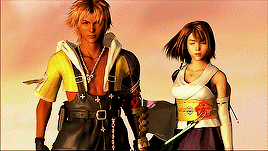


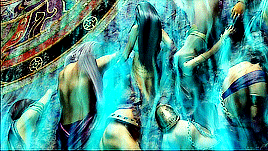




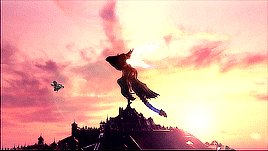
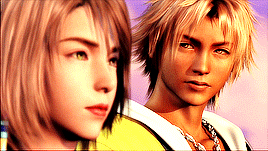
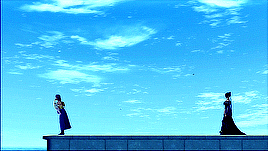
beautiful games i've played ➤ final fantasy x
"Die and be free of pain, or live and fight your sorrow! Now is the time to shape your stories! Your fate is in your hands!"








